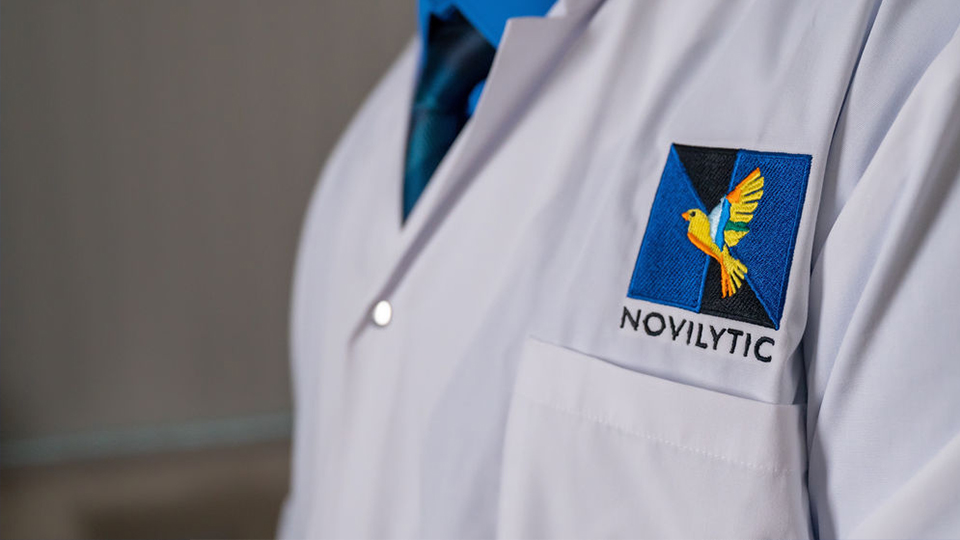Novilytic CEO warns of negative impact of SBIR expiration
Subscriber Benefit
As a subscriber you can listen to articles at work, in the car, or while you work out. Subscribe Now
The chief executive officer of West Lafayette-based startup Novilytic says the potential expiration of the federal Small Business Innovation Research (SBIR) and Small Business Technology Transfer (STTR) programs would have a major impact on innovation in Indiana. Congress has until September 30 to reauthorize the programs, which provide billions of dollars in funding each year. “It’s going to put us and America behind,” said Paul Dreier. “We need this type of funding to grow our country and to keep a technology leadership on a global scale.”
In an interview with Inside INdiana Business Reporter Alex Brown, Dreier said many businesses rely on SBIR/STTR funding.
“The simple truth is that the funding for this type of stuff just doesn’t exist in the real world, or very little of it does,” said Dreier. “When you are funded by an SBIR, it’s much easier to get investment funding to grow your company. It’s non-capitalized funding that helps you grow technology and launch products in the market.”
The SBIR and STTR programs awarded a total of more than $3.7 billion in funding in Fiscal Year 2019, according to an annual report from the U.S. Small Business Administration. The report for 2019 was the most recent report available on the SBIR website.
The funding is awarded through 12 federal agencies, including the U.S. Department of Defense, the National Science Foundation, and the Department of Health and Human Services, which includes the National Institutes of Health.
Novilytic is currently testing its Proteometer tool, which can be used by pharmaceutical companies to catch contamination in the drug-making process much earlier, potentially saving them millions of dollars.
Dreier says landing SBIR funding early on was crucial in the development of the technology.
“SBIRs are the reason we’re a company and launching a new technology,” he said. “One of the big reasons is the SBIR funding helped us perfect this technology that will be used to make medicines safe and make them much less expensive to product. So, they’re giving back to the country in a big way.”
Dreier was one of more than two dozen industry leaders, led by the Indiana Health Industry Forum, who signed a letter to Indiana’s congressional delegation urging them to support reauthorizing the SBIR/STTR programs, saying it was “vitally important” to Indiana’s economy.
“A disruption in the program could mean that important research on new therapies and technologies is suspended or stopped, sending additional shocks through the supply chain that supports pre-clinical research,” the letter said. “Federal agencies could also see their research and technology development stalled by a disruption in these programs. Both small businesses and the granting agencies need certainty, stability, and predictability to budget and plan, especially as the nation works to emerge from the COVID-19 pandemic and faces ongoing economic challenges.”
The letter said Indiana companies have received 258 SBIR grants totaling more than $118 million since 2018.
Dreier says it appears the controversy of reauthorizing the programs is centered on the fact that about 11% of SBIR grant recipients are not producing products that give a return back.
“But that means there are 89% of us that are giving a return back to it. I would ask Congress…I’m 100% behind them solving the problem of that 11%, but please don’t throw the baby out with the bath water.”
The SBA says if the programs are not reauthorized, those who received funding prior to September 30 should continue to their work under those agreements.
Dreier adds if the programs are reauthorized, it will not only send a message the government will help continue to grow businesses, but also support additional investment from outside sources.
“Investors have pulled back right now in investing in startups,” he said. “There’s the uncertainty of inflation and certain things that are happening in marketplace. So, they’re slowing things down, but they are investing in companies that have SBIR backing. If they put that in, they’re going to have more investments. It’s going to grow more jobs. It’s going to pay more taxes. So, that would be a very positive outcome.”
You can learn more about the potential expiration of the programs by clicking here.
